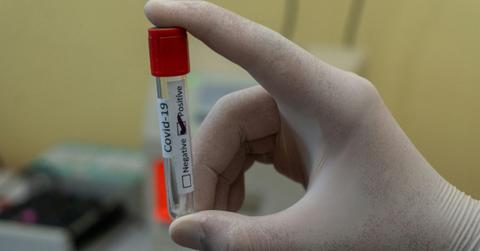Major Breakthrough: Researchers Uncover Surprising Significant Factor in Long COVID Cases

Scientists say they have discovered a link between low iron levels and long COVID.
New research has pinpointed iron deficiencies in blood as a significant factor in long COVID cases.
A recent study conducted at the University of Cambridge has linked low iron levels to inflammation, anemia and impaired red blood cell production in patients as soon as two weeks after their COVID-19 diagnosis.
Many of these patients subsequently experienced long COVID, characterized by symptoms such as brain fog, within months of their initial diagnosis. The study, published in Nature Immunology, sheds light on the prevalence of this condition, estimating that around three in ten individuals infected with SARS-CoV-2 are susceptible to long COVID.
According to the Centers for Disease Control and Prevention (CDC), nearly three million Americans receive treatment for anemia or iron deficiency, underscoring the significance of this finding.
Co-author Hal Drakesmith explains that during infection, the body responds by sequestering iron from the bloodstream, a protective mechanism against bacterial proliferation.
However, prolonged iron depletion leads to inefficient oxygen transport, affecting metabolism and energy levels.
The research, which analyzed blood samples over a year, observed similar patterns of disrupted iron levels in both severe and mild COVID cases.
Despite the body's attempts to compensate by increasing red blood cell production, ongoing inflammation hindered effective recovery, particularly in individuals who later developed long COVID symptoms.
Lead researcher Dr. Aimee Hanson emphasizes the challenges of addressing this issue directly through iron supplementation, highlighting the need for more nuanced interventions.
The focus now shifts towards managing inflammation more effectively to mitigate its impact on iron levels, thereby improving long COVID treatment outcomes.
Never miss a story — sign up for the Front Page Detectives newsletter. Be on the scene the moment news breaks.
Rather than simply addressing iron deficiency, the goal is to mobilize iron trapped in tissues and redistribute it to the bloodstream where it can support red blood cell function more efficiently.
This approach holds promise for enhancing the management of long COVID and alleviating its debilitating symptoms.
Become a Front Page Detective
Sign up to receive breaking
Front Page Detectives
news and exclusive investigations.
